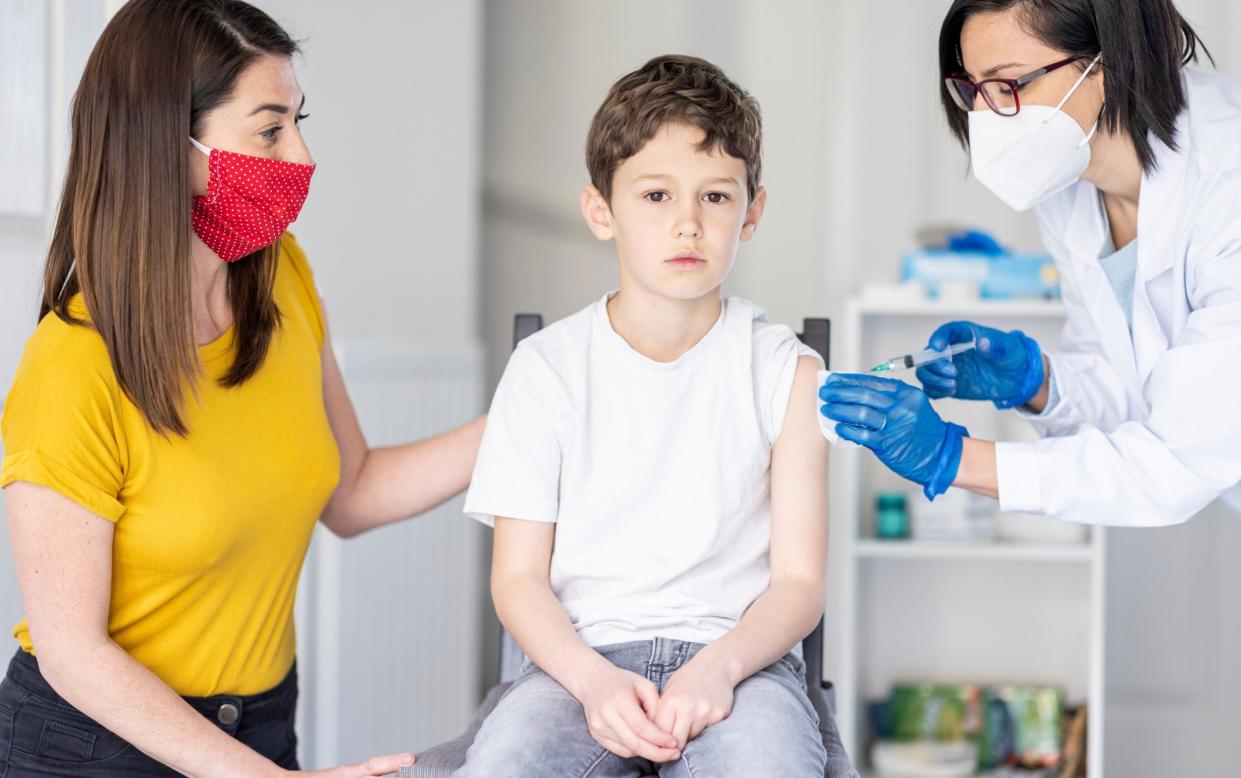‘Extremely worrying’ drop in childhood vaccinations since the pandemic

Health chiefs have warned of an “extremely worrying” drop in childhood vaccinations such as MMR since the pandemic.
Latest figures show falls in 13 of 14 routine immunisations with uptake levels for some of the main jabs far below recommended levels.
The figures show uptake for the measles, mumps and rubella among two-year olds was just 89.2 per cent in 2021/22 - down from 90.3 per cent the year before.
The figures show just 85.7 per cent of children had received their 2nd dose of MMR vaccine by their fifth birthday, falling from 86.6 per cent in the previous year.
The World Health Organisation recommends minimal levels of 95 per cent, in order to prevent the spread of avoidable disease which can be deadly.
It follows warnings that too many children have missed jabs, amid disruption caused by coronavirus, with school closures, and changes in vaccination schedules in order to roll out Covid jabs.
Health experts are predicting a surge in such illnesses among children whose early years were dominated by social distancing.
Dr Vanessa Saliba, a consultant epidemiologist at the UK Health Security Agency (UKHSA), said: “Measles is highly contagious and can be dangerous, and it is extremely worrying that we are seeing levels of uptake of the MMR vaccine falling among young children.”
Parents urged to ensure children are up to date
She urged parents to check children were up to date with their vaccinations, saying it would give maximum protection against diseases which can be deadly.
“Childhood vaccines also boost population immunity levels, helping prevent outbreaks, so by taking up all vaccinations for our children, we play our part in keeping these diseases confined to the past,” she added.
The latest vaccination statistics from the UKHSA and NHS Digital for children up to five years of age in the UK shows coverage decreased for 13 out of the 14 routine vaccination programmes measured in 2021-22.
They include vaccines which protect against diphtheria, pertussis, tetanus, polio, disease caused by Haemophilus influenzae type b and hepatitis B.
Prof Helen Bedford, a professor of child public health at the institute of child health, UCL, said: “Due to the measures brought in to reduce social contact during the pandemic, we saw infection rates drop to extremely low levels. However, these infections have not gone away. The reported decline in vaccine uptake in 21/22 compared with previous years is of great concern.
However, this decline comes as little surprise given the difficulties for some parents accessing immunisation services during the pandemic. But now we are back to normal, and this leaves us with the concerning double whammy of many children being unprotected and the inevitability of disease rates increasing.”

